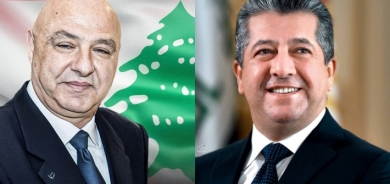Iraq security tight after deadly attacks

Monday's spate of bombings and shootings, which drew widespread international condemnation, came after al-Qaeda warned it would seek to retake territory and mount new attacks.
Overall, 29 separate attacks were launched in 19 cities, shattering the relative calm that had held in the lead-up to the start of the holy Muslim fasting month of Ramadan.
Extra police and soldiers as well as security force vehicles were deployed on Tuesday at marketplaces in neighbourhoods of Baghdad hit by the violence, witnesses said.
In the deadliest incidents - a string of roadside bombs and a car bomb followed by a suicide attack targeting emergency responders in the town of Taji, just north of Baghdad - at least 42 people were killed and 40 wounded, medical officials said.
"I was sleeping, and my parents lifted me out of bed," recalled 11-year-old Mohammed, whose family's home in Taji was levelled by the blast.
Car bombs
"They were shouting, 'Get up quickly! Help your younger brothers! There is a car bomb!'"
"It felt like it was just a few moments later when it exploded, and there was a big ball of fire, and the wreckage was falling over our heads."
In Baghdad a car bomb outside a government office responsible for producing identity papers in the Shi'ite bastion of Sadr City killed at least 12 people and wounded 33 others, security and medical officials said.
Explosions elsewhere in Baghdad killed at least six people and wounded 51 others, including a car bomb outside a cafe in the capital's Ur neighbourhood that left at least two dead and 24 wounded, officials said.
A car bomb in the town of Tarmiyah, just north of the capital, also killed one and hurt nine.
Elsewhere in Iraq, shootings and bomb blasts in Diyala, Salaheddin, Kirkuk, Anbar and Diwaniyah provinces left 52 people dead and more than 100 wounded.
No claim of responsibility
US State department spokesperson Victoria Nuland told reporters Washington strongly condemned the attacks.
"The targeting of innocents is always cowardly," she said. "It's particularly reprehensible during this holy month of Ramadan."
The violence also drew condemnation from the United Nations special envoy to Iraq, the country's parliament speaker, as well as France, Canada and neighbouring Iran.
There was no immediate claim of responsibility for Monday's attacks, but al-Qaeda's front group in Iraq has warned in recent days it would seek to retake territory in the country.
The Islamic State of Iraq said in an audio message posted online that it would begin targeting judges and prosecutors, and appealed for the help of Sunni tribes in its quest to recapture territory it once held.
Monday's attacks came a day after a spate of bombings across the country killed at least 17 people and wounded nearly 100. Monday's toll was the highest since 8 December 2009, when 127 people were killed.
Source: AFP













